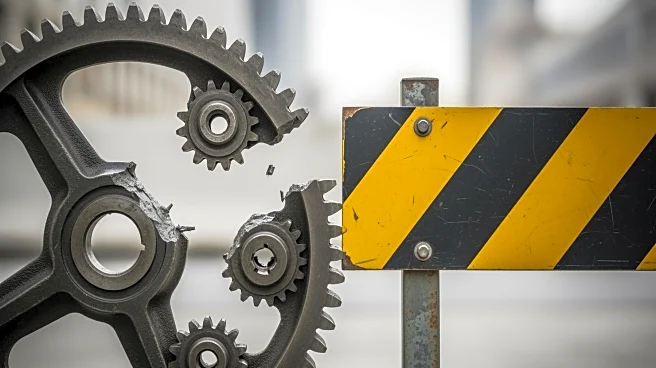What's Happening?
A preliminary report on the Lisbon funicular crash that occurred in September has revealed significant maintenance failures. The crash resulted in the deaths of 16 people, including 11 foreigners, and injured 20 others. The report, released by Portugal's
Air and Rail Accident Investigations Bureau, highlighted that the steel cable connecting the funicular cars was defective and not certified for passenger use. The cable snapped, causing one of the cars to derail and crash into a building. The transport company, Carris, has dismissed its head of maintenance following the findings.
Why It's Important?
The incident underscores the critical importance of rigorous safety standards and oversight in public transportation systems. The failure to properly certify and test equipment can lead to catastrophic consequences, as seen in this tragic event. The dismissal of Carris's head of maintenance indicates accountability measures are being taken, but it also raises questions about the broader safety practices within the company. This event may prompt other transport companies to review their safety protocols to prevent similar occurrences.
What's Next?
Lisbon's Mayor Carlos Moedas has stated that the tragedy was due to technical failures rather than political oversight. All Lisbon cable cars have been ordered out of service until safety checks are completed. The full report on the crash is expected to take 11 months to complete, with interim findings to be released if necessary. Carris is advised to implement a new safety management system in line with European best practices.
Beyond the Headlines
The crash has highlighted a loophole in the legal and supervisory oversight of Lisbon's historic funiculars, which are exempt from regulations that apply to other cable-driven transport systems. This exemption may be reconsidered in light of the accident, potentially leading to legislative changes to ensure all transport systems meet stringent safety standards.
















